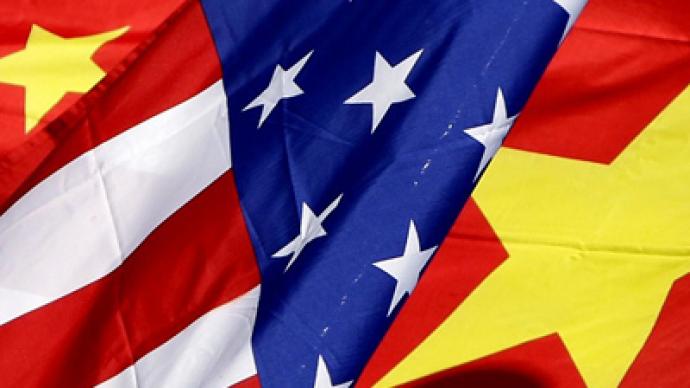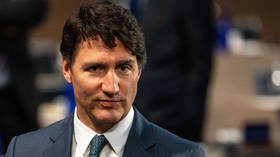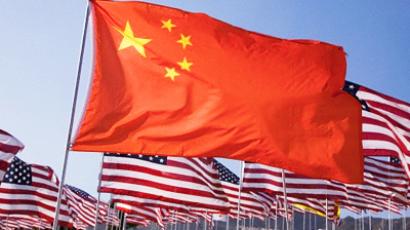What the US can learn from a rising China

As Chinese President Hu Jintao toured the US capital, President Barack Obama and American officials were eager to quell fears about what China’s rise means for the lone superpower.
For some in the United States, China elicits fear, recognizing China’s rise means recognizing America’s decline. For others, it’s feelings of inferiority. A Pew Research Center poll found that 47 percent of Americans think China is the world’s leading economic power, while only 31 percent think the US is. Many analysts and Washingtonians said that rather than fear China, the US can learn from China. “China knows how to develop, they're doing it,” said Jim Rogers, cofounder of the Quantum Fund. “We are expending, borrowing and consuming rather than saving and investing for the future.” And while the US has put education on the budget chopping block this year, China will invest 4 percent of its GDP in rural schools. That investment in education and chance to graduate without immense student loans is what brought Philadelphia native Zachary Franklin to Fudan University’s master’s program in Chinese Economics. “It seemed just a better decision to be in a country learning about economics where so much is happening economically,” said Franklin. “It’s a fraction of what I paid for my undergraduate education, and Chinese themselves are not paying exorbitant amounts of money for an education in this country.”China is also speeding ahead on high-speed rail lines and massive infrastructure projects. Chinese officials claim they will complete the first eco-city which will be home to 350,000 in just eight years.Pepe Escobar, a journalist with the Asia Times explained America wants to sell exports to China, and China is interested in buying high technology exports and increasing economic interdependence. However, it is unclear if the US is willing to export the specific technologies China may be interested in.China is a much smaller economy than the US, its population is much larger and it’s poverty level much higher. The US is wealthier and boasts a stronger market, right now, added Max Fraad Wolff, an economist and professor at The New School in New York. He explained, the Chinese should have a stronger economy, but poverty is preventing it from doing so. “The direction of change massively favors China,” he said. “The direction of change is even more aggravated by the fact the United States has been negative to flat in its growth lately.” While the direction of change is important, the US is still larger and it is unclear how long the current change may continue. The absolute numbers favor the US, neither situation is finite. Escobar explained China should be thankful to American corporations and earlier Chinese market reforms which opened the door to their entrance. The capitalist experiment in China allowed American and other corporations to brining jobs and manufacturing to China. “The big story here is mutual dependence,” explained Wolff. “They share a lot of resources and needs, but at the same time are uncomfortable with it.” In 1970, 20 percent of American jobs were in manufacturing, today only an estimated 9 percent are. Many conservative American politicians argue China has stolen American jobs.“US corporations decided to move, first to Southeast Asia, Thailand, Indonesia, Malaysia, South Korea, and then to China,” remarked Escobar. “The corporations are not interested in the plight of the American working class, of the middle class. What matters is profits and the profits are to be made basically in Asia.” He explained it was not China that stole jobs, but jobs that were already in Southeast Asia that shifted to China after market reforms took place. In a previous statement to RT, former US Ambassador to the UN John Bolton said, “Before World War I professors were writing there could never be another war in Europe because the economies were so interlinked. Well, that theory was rudely disabused in 1914. Obviously, when you have closely linked economies there’s a lot of common interests. But, there are a lot of interests that are not common as well. I think it’s mostly China’s call here whether they want good relations or bad, that’s why their military buildup poses a potential threat.” Wolff explained there could be conflict, even if nations are interconnected, if domestic issues in both nations boil over and blame falls on the foreign entity. China is concerned however of the US military buildup, and is acting with that in mind, explained Escobar.“They [Chinese] are being encircled by military bases on the eastern front and the western front, from Afghanistan to Northeast Asia. That’s why last week we had that stealth fighter flying overhead of Robert Gates from the Pentagon,” he said. “I’m sure Obama and Hu are not discussing this face to face, the fact that China considers it to be military encircled by the Pentagon.”
Andrew Gavin Marshall, a research associate with the Centre for Research on Globalization said China is not the next economic leader of the world, and is merely growing within a confined system.“The rise of China is not against the prevailing hegemon in the world, America. But, the rise of China is within the hegemonic system itself,” he commented. “China rises so much as the west allows it to rise.” The US and China are codependent, Americans consumes Chinese products and China finances the US. The two are heavily integrated but are also one another’s biggest competitors for global resources, he added. Both nations focus extensively on interests in the Middle East and Africa, as seen in regional conflicts, the rise of US African Command and Chinese projects and workers in both regions. “It’s a schizophrenic relationship,” Marshall remarked. “The aim is to prevent the rise of a new power by controlling world resources.”
Michael Hudson, a professor of economics at the University of Missouri at Kansas City explained the US is still larger than China economically, but the size of the surplus is just as important. “China has been able to use its finance to build up its industry, to build up its railroads. America’s used its finance mainly to inflate a real estate bubble and get the economy into debt. China has seen what’s happening in America. It’s trying to avoid that,” he said. “We aren’t raising living standards here and we haven’t for 30 years. China has undergone an amazing growth in living standards. Its real estate construction is still going on, it’s building infrastructure. America is dismantling its infrastructure. The states and localities are broke. They are selling off their streets, railroads property, everything they can. China is building it up. We are going in different directions, that what worries people. We not going down in America because of anything China is doing, we’re going down because that’s our financial philosophy.”
Thomas Wright from the Chicago Council on Global Affairs thinks that America must find a new China strategy.“The US needs to go beyond focusing purely on China, Wright says, and develop a broader strategy that includes its allies and partners in the region. The best China policy for the US, he argues, is to promote a stable but vibrant order in the Pacific region.”
Rick Rozoff, an international affairs analyst and manager of the Stop NATO non-governmental organization, says that relations between the US and China will not change overnight.“We saw a worsening of US-Chinese tensions – arguably at their lowest ebb in several decades – with the decision by the White House in January of last year to complete the $6.4 trillion arms deal with Taiwan, which included interceptor missiles. I, for one, remain skeptical about whether better state-to-state and geopolitical interests between the US and China are going to improve in the next year. There’s too much at stake, and I think Washington is hesitant to give up what it sees as its dominant role in the western Pacific," Rozoff said.














